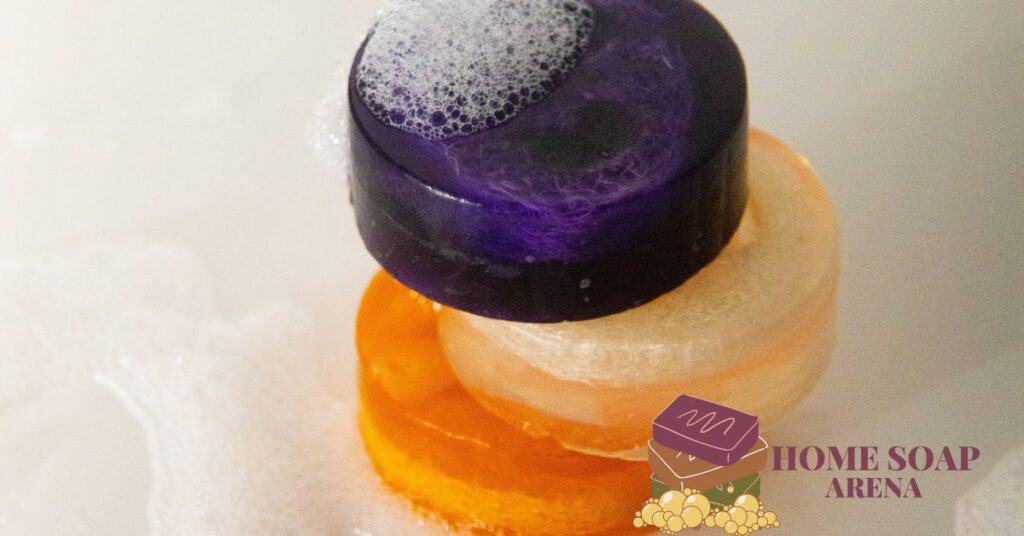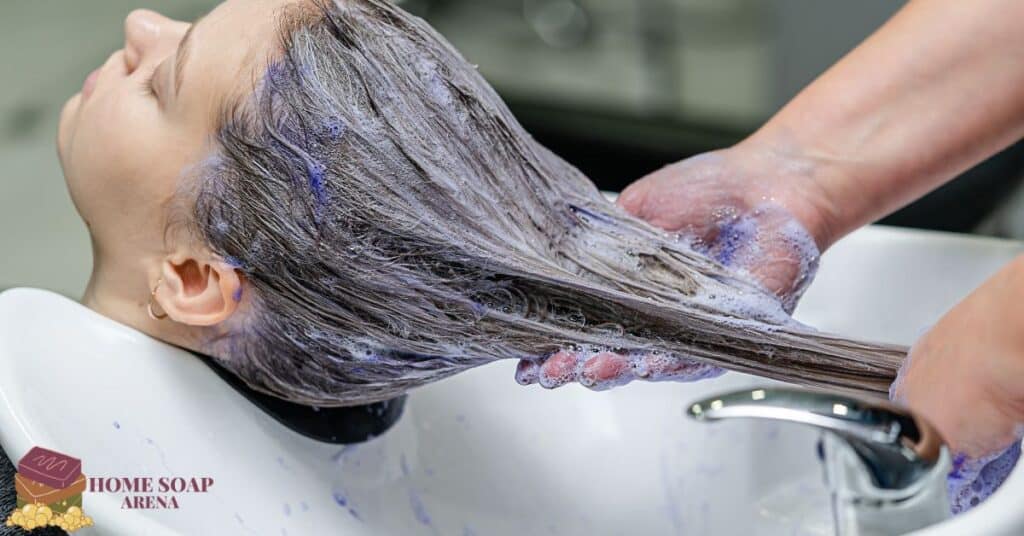Table of Contents
- Factors That Influence How Often Males Wash Their Hair
- Hair Type
- Lifestyle
- Hair Porosity
- Activity Level
- Conclusion
How often should males wash hair? There is no one right answer. However, try to wash as infrequently as possible.
Maintaining a healthy and vibrant mane is a common goal for many men, and one key aspect of proper hair care is determining the ideal frequency of washing.
Striking the right balance is crucial to ensuring clean, well-nourished hair without overdoing it.
How often should I wash my hair? Is it safe to shampoo daily? I have seen this debate all over the internet.
However, in this article, I’ll tell you the factors you need to consider to make the right decision.
Let’s Start!
Factors That Influence How Often Males Wash Their Hair
So, you hear YouTubers saying the number one mistake you can make is washing your hair too often.
Then someone in the comments references a dermatologist or doctor video, saying, Ah, this is a myth. You should wash your hair every day.
It’s completely safe to do that. And then you have sort of the opposite direction.
The No-Poo crowd is saying that commercial shampoo is a scam and you should look for homemade remedies or alternative methods for cleaning your hair.
So, what’s going on? Who’s right, who’s wrong? I’m going to break down this question and answer it.
I did my best to simplify these hundreds of factors into three sorts of overarching categories that will help you decide what’s best for you.
And those three categories are hair type, lifestyle, and scalp health.
Scalp Condition
Your scalp is the living part of your hair, and it produces natural oils called sebum that nourish and protect your hair.
Shampoo is a soap that cleans your hair by removing dirt, excess oil, and product buildup.
However, shampooing too often can also strip away the natural oils that your hair needs, making it dry, brittle, and prone to breakage.
On the other hand, shampooing too rarely causes your scalp to become oily, itchy, flaky, or even infected by bacteria or fungi.
The ideal shampooing frequency for your scalp depends on how much oil it produces and how sensitive it is.
Depending on your scalp type, you may need to shampoo with different frequencies.
For an oily scalp, more frequent shampooing may be necessary to prevent clogged pores, acne, and dandruff.
For a dry scalp, less frequent shampooing with sulfate-free shampoo may be required to avoid irritation and inflammation.
Those with normal scalps may shampoo every 2-3 days or as needed.
Hair Type
One of the reasons there needs to be more clarity around wash frequency is that most people think frequency is the only factor.
And they don’t account for the types of products they use and the types of formulas they use.
So if you’re using shampoo for a balanced scalp and your scalp is greasy, you’re going to feel like daily is the only frequency for you.
And because it doesn’t cleanse your scalp well enough, you’re going to be constantly feeling like you had to wash your hair every single day.
On the flip side, if you’re using shampoo for greasy scalps and your scalp is dry, you’re going to feel like your skin is always tight.
You’ll feel your scalp is always stripped of oil, and it might feel itchy.
Because shampoo binds to oil, if you don’t have excess oil from dirty hair, shampoo is going to take from hair and scalp, leaving it dry.
Another hair type factor you’ll want to account for is hair length. When you have shorter hair, it doesn’t take long for oils to spread.
You know you only have two or three inches of hair that can spread pretty quickly. So you’re going to have to wash your hair more often.
And if you have long hair or something beyond chin length down to your chest or back, it will take longer for your sebum to spread across all of that space.
You can even extend the time between washes by brushing your hair and spreading those natural oils even more so that there’s not as much buildup on your scalp.
Now, if you have curly hair, it’s a different story, right? Your wash frequency is not only going to depend on the scalp moisture levels that I just mentioned.
But also, it depends on how long your curls stay intact before you need to wash them, hydrate them, condition them, reapply Curl Cream, and redo your whole diffused method, possibly to keep your curls looking fresh.
The first solution is to determine your hair type because then you can shop for the right formula strength and then you can address frequency much better.
So you might be asking at this point, How the heck do I find out what my hair type is? You can take a hair-type quiz.
Lifestyle
So, let’s say you know your hair type, and you have the right shampoo, and you’re still scratching your hair.
The next factor we should look at, which will help us answer that question, is lifestyle.
Lifestyle can include a lot of things. I’ve mainly included occupation, the weather, where you live, and your activity level.
For example, if you live a sedentary lifestyle most of the day and you live in California, where it’s not too humid or too hot, you can probably get away with extending your wash days quite a bit.
Let’s look at the flip side. Let’s say you live in Houston, Texas, and you work out five times a week. You work outdoors a lot, and it’s always humid, frizzy, and greasy.
You’re going to have to wash your hair much more often.
You can extend it if you throw in some dry shampoo, but after what your hair type is, your lifestyle is going to be the next most important factor in frequency.
And since everyone’s lifestyle is different, this is going to have to be an experiment for you individually.
You’re going to have to figure out how to balance your hair type with the proper formulas with what your lifestyle is and what the weather is in the area.
One tip that I can give to humid city dwellers is to always have a conditioner handy because frizz will be your worst nightmare.
Another factor that will affect your wash frequency is going to be your overall general scalp health.
This is different from your scalp moisture levels, which is one factor in figuring out what your hair type is. So this is really if you have a scalp condition.
This is something you might need: a medicated shampoo, a medicated leavin tonic, or something that you have to apply to your scalp.
If you have a healthy scalp, then you can go back to your hair type, and you can go back to your lifestyle.
Those are going to be the two main factors to determine frequency.
But suppose you struggle with something like seborrheic dermatitis or psoriasis.
In that case, you should increase wash frequency and also speak with a dermatologist to help manage those symptoms and get something to fight that fungal imbalance.
If you come across a video that claims that washing your hair too often is one of the biggest hair mistakes you’re making, it’s important to be cautious and not take it at face value.
While it may be true for some people, it might not apply to everyone.
Factors like hair type, scalp condition, lifestyle, and climate can also play a role in how often you need to wash your hair.
It’s important to choose the right shampoo and use clarifying shampoo when needed. Dry shampoo can also be a helpful solution.
I recommend washing your hair as infrequently as possible, but it’s important to find a routine that works for you and your unique hair and scalp needs.
Now, if that means daily, then that’s as infrequently as possible for you, and that’s fine. If that means every seven days, that’s fine too.
Everyone is different, and I’ll just let you know what mine is. I wash my hair every four to five days.
That’s what supports my hair type and my lifestyle the best, and so that’s what I do.
However, figure out what works best for you, and you’re going to be just fine; your hair won’t get damaged.
Hair Porosity
Your hair porosity refers to how well your hair can absorb and retain moisture.
It can be classified into three levels: low, medium, and high. Each level has different implications for how often you should shampoo your hair.
Low porosity hair has a tightly packed cuticle layer that resists moisture. It tends to be healthy, shiny, and smooth but also prone to product buildup and heaviness.
Low porosity hair can usually handle shampooing every 5-7 days, but it may benefit from using a clarifying shampoo and a lightweight conditioner to remove any residue and enhance moisture penetration.
Medium porosity hair has a moderately open cuticle layer that allows moisture to enter and exit.
It tends to be normal, balanced, and easy to style, but also prone to environmental damage and color fading.
Medium porosity hair can usually handle shampooing every 3-5 days, but it may benefit from using a hydrating shampoo and a color-protecting conditioner to maintain moisture and vibrancy.
High porosity hair has a highly porous cuticle layer that loses moisture quickly. It tends to be dry, dull, and brittle but also prone to frizz and breakage.
High porosity hair can usually handle shampooing every 1-2 days, but it may benefit from using a protein-rich shampoo and a sealing conditioner to restore moisture and strength.
Activity Level
Your activity level refers to how much you sweat and expose your hair to dirt, pollution, and other external factors.
It can affect how often you should shampoo your hair, regardless of your scalp condition, hair type, or hair porosity.
If you are very active, you may need to shampoo more often to keep your hair and scalp clean and fresh.
This is especially true if you exercise, play sports, work outdoors, or live in a hot and humid climate.
You may also need to use a mild shampoo and a nourishing conditioner to prevent your hair from becoming dry and damaged by frequent washing.
If you are moderately active, you may need to shampoo every 2-3 days or as needed.
This is the average shampooing frequency for most men, and it can help you maintain a healthy balance of oil and moisture in your hair and scalp.
You also need to use a shampoo and conditioner that suits your hair type and porosity to optimize your hair health and appearance.
If you are not very active, you may need to shampoo less often or only when your hair feels dirty or greasy.
This is the case if you have a sedentary lifestyle, work indoors, or live in a cold and dry climate.
Conclusion
With the above information, what’s the big takeaway from this article? There is no one right answer. How often you should shampoo your hair depends on many factors.
There is no universal rule that applies to everyone, but there are some general guidelines that can help you find the best shampooing frequency for your hair.
The most important thing is to listen to your hair and scalp and adjust your shampooing routine accordingly.



